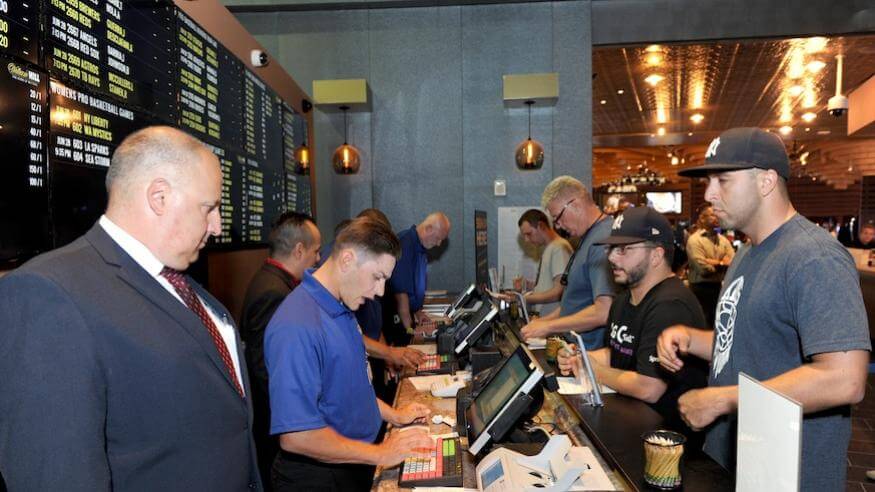This Friday, the New Jersey Division of Gaming Enforcement will release its monthly gaming revenue report, and — as it has for the last three months — will probably show that Atlantic City’s Ocean Resorts’ Casino had a declining gaming revenue despite a bright future for its increasingly popular sportsbook.
This alone isn’t reason for AC’s Ocean Walk LLC. and its majority-owned by Colorado developer Bruce Deifik to have put Ocean Resorts on the market after only 12 months of ownership and six being open for business. Or to have reported new owners as of January 10, who, according to the Associated Press, will pump $70 million into ORC for added hotel suites, buffets and gambling floor improvements (Deifik and his family retain a non-controlling interest in the property).
What did make it necessary for Deifik and family to vacate ORC and AC stems from the fact that they knew little about the city, the casino and the one-time Revel property itself from the start. Ask Joey Morrissey, the one-time managing director of ORC nightclub HQ2, who filed lawsuits against Deifik claiming to have been fired (in August) to rob Morrissey of a partnership interest reportedly owed as part of his club management agreement. Court documents filed in December show that Morrissey’s attorneys claim Deifik was “seeking to sell the casino to a new buyer and to eliminate anyone with ownership interest who could thwart the sale.”
Other ORC restaurant managers have had horror tales from the start, and there has long been rumors of contractors seeking missed payments (“a million here, a million there for work in the nightclub,” said Morrissey), but it was a comprehensive sense of unknowing that doomed one of ACs tow newest casinos.
“Bruce never knew what he was doing,” says Morrissey when contacted Thursday, the day the $70 million sale was reportedly made by an unknown purchaser (Deifik did not respond to interview requests). “He wanted to be the guy who had never been in AC and bought a $2 billion property, sight-unseen, for $200 million, and make profit from Day 1. He probably thought he could flip it from the get-go. Based on July numbers, he figured he’d get decent revenue out of it, as he controlled the majority.”
Deifik and Morrissey, initially interviewed in seemingly happier times, pre-opening (www.metro.us/news/the-big-stories/ocean-resort-casino-good-deal-great-future-and-some-real-personality), reportedly butted heads early.
Morrissey, a Manhattan-to-Hamptons nightclub veteran, was confident his HQ2 was ready to open in July with name DJs and friend-celebs (e.g. Heidi Klum, Mark Wahlberg whose Wahlburgers opened soon after ORC’s debut) hitting AC’s sands. “The rest of the casino, however, was a mess,” claims Morrissey, giving an example of how Deifik had no acts booked into ORC’s Ovation Hall, leading Morrissey to bring AEG/Bowery Presents to the table (Deifik didn’t pull the trigger on the AEG deal because he didn’t understand it).
Morrissey also states that the idea of opening ORC the same day as Hard Rock debuted was his, “so that we wouldn’t have to pay for it, as press wasn’t going to come down to AC twice. … Bruce didn’t GET marketing. If I didn’t help Bruce open, I would go down the hole with him, so I diverted some of my attention and know-how to getting the whole casino.”
Along with claiming he have pushed Deifik to open successfully, Morrissey states he helped come up with investment dollars and additional investors (to the tune of around $10 million), to which he would have received commissions, partnership and a percentage of club profits as it was Morrissey’s name on the liquor license through the casino, and not solely the nightclub as intended. “Bruce sidestepped the commission — a paint turned into half a point — put the nightclub’s liquor license through the casino rather than give me sub-license, and kept saying he was giving me the club. But he didn’t give me the club. I raised many millions for it, and had an operational agreement to be a partner in the club.”
When all this came to head in August, and Morrissey sought to be bought out of his contract and settle with Deifik, the ORC owner simply fired him. Deifik reportedly wanted Morrissey out because the HQ2 manager’s stake in the property hadn’t been disclosed to lender JPMorgan Chase & Co. and would be an obstacle to the casino’s sale, the lawsuit alleges. Morrissey waited until December to file the lawsuit and get his ducks in a row.
“Bruce was trying to raise money as he was in debt, since almost the start, and was trying to get another pigeon in there to save his ass.” As for any fresh or recent sale, Morrissey snorts, “that’s gotta be a bulls— story. You can’t just sell a casino without having DGG (Division of Gaming Enforcement) approval. Nobody’s coming into AC without proper vetting. Bruce overleveraged himself, played the big guy. He got $165 million haircut.”




























